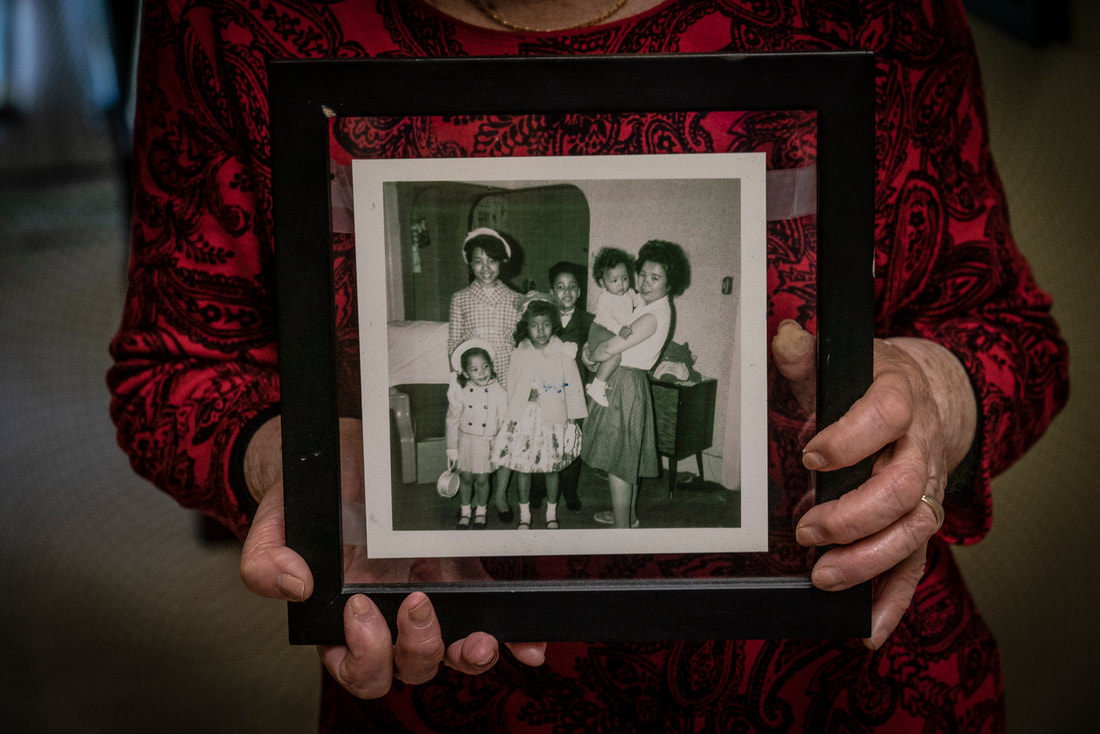After more than a decade of research and over 100 interviews with Japanese war brides and their families, we are proud and thrilled to announce a new history unit for grades five and up. This downloadable teaching material is being offered free of charge. Using the war bride story as a framework, it enables students to think about immigration in new and creative ways.
For this unusual project — based on our short documentary film and rich oral history archive — we partnered with the Stanford Program on International and Cross-Cultural Education (SPICE), a leader in the field of teaching international topics in public schools.
This unit consists of:
- A 39-page teacher’s guide, developed by SPICE curriculum specialist Waka Takahashi Brown for the short documentary, Fall Seven Times, Get Up Eight: The Japanese War Brides.
- Five lessons to accompany the 40 short audio stories on this site: Japanese War Brides: An Oral History Archive. Middle school, high school and college teachers are invited to use these five lessons either in sequence as a complete unit, or individually, as stand-alone sessions.
The unit, including a link to the film, is on the SPICE website:
https://spice.fsi.stanford.edu/multimedia/japanese-war-brides-oral-history-archive
These lessons were designed to engage students with broad themes emerging from the individual experiences of Japanese war brides — Japanese immigrant women reflecting on life in postwar Japan, their journeys to the United States, and their experiences in America.
The comprehensive curriculum and teachers guide were made possible by:
- Generous support by Adrian Arima and Monica Yeung Arima
- Donations from more than 70 individual contributors to The War Bride Experience Inc. listed under Supporters.
- The International Marriage Friendship Club
- The Minnesota Nihonjinkai, in honor of Yoko Breckenridge and all past and present members
The War Bride Experience, Inc., gives special acknowledgement and deep thanks to SPICE Director Dr. Gary Mukai, a primary developer of the curriculum, and SPICE Instructor Kasumi Yamashita, who co-authored lessons 1 and 3.
Kathryn Tolbert, former Education Editor, The Washington Post, served as primary content advisor and editor of the curriculum.
For this unusual project — based on our short documentary film and rich oral history archive — we partnered with the Stanford Program on International and Cross-Cultural Education (SPICE), a leader in the field of teaching international topics in public schools.
This unit consists of:
- A 39-page teacher’s guide, developed by SPICE curriculum specialist Waka Takahashi Brown for the short documentary, Fall Seven Times, Get Up Eight: The Japanese War Brides.
- Five lessons to accompany the 40 short audio stories on this site: Japanese War Brides: An Oral History Archive. Middle school, high school and college teachers are invited to use these five lessons either in sequence as a complete unit, or individually, as stand-alone sessions.
The unit, including a link to the film, is on the SPICE website:
https://spice.fsi.stanford.edu/multimedia/japanese-war-brides-oral-history-archive
These lessons were designed to engage students with broad themes emerging from the individual experiences of Japanese war brides — Japanese immigrant women reflecting on life in postwar Japan, their journeys to the United States, and their experiences in America.
The comprehensive curriculum and teachers guide were made possible by:
- Generous support by Adrian Arima and Monica Yeung Arima
- Donations from more than 70 individual contributors to The War Bride Experience Inc. listed under Supporters.
- The International Marriage Friendship Club
- The Minnesota Nihonjinkai, in honor of Yoko Breckenridge and all past and present members
The War Bride Experience, Inc., gives special acknowledgement and deep thanks to SPICE Director Dr. Gary Mukai, a primary developer of the curriculum, and SPICE Instructor Kasumi Yamashita, who co-authored lessons 1 and 3.
Kathryn Tolbert, former Education Editor, The Washington Post, served as primary content advisor and editor of the curriculum.
